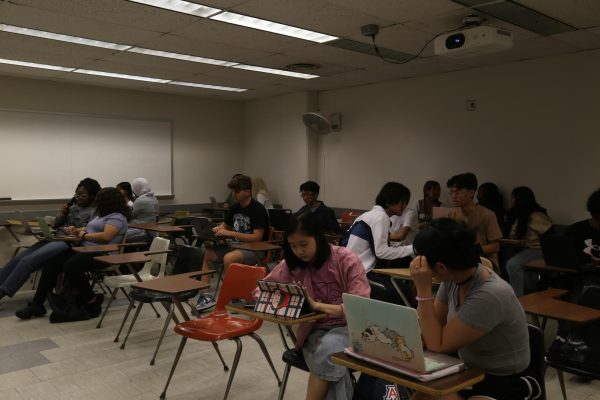OPINION: With test-optional policies for college admissions remaining in place, ignoring the SAT is a mistake for college applicants

In the wake of the COVID-19 pandemic, reports that the crisis would spell the demise of the SAT and ACT flooded the media. Amid test center closures and numerous test cancellations during the pandemic, hundreds of universities suspended their testing requirements during the 2020-2021 admission cycle. Nearly 80 percent of four-year colleges went test-optional.
What began as an emergency response for college-bound students during the pandemic now seems to be an attempt to subtract the SAT from the college admissions process permanently. According to Higher Ed Dive, over 1,800 four-year colleges in the United States will not require score submissions for first-year applicants applying during the 2022-2023 cycle. A handful of elite schools have even extended test-optional admissions policies through the high school class of 2023 and beyond. Though test-optional allowances are prevailing at a sweeping rate, ignoring the SAT and ACT is a serious mistake for students.
For most students, opting out of the standardized exams offers the path of least resistance. With promises to give “every student a fair shake,” most applicants are lulled by the spirit of test-optional admissions into thinking SAT scores now harbor less value. But we argue that submitting strong test scores can give applicants an advantage even if submission is not required.
We are not suggesting that applicants who disclose scores increase their college admission chances. Nor are applicants penalized for not disclosing their scores. It does seem, however, that many test-optional schools tend to prefer strong test scores over none at all. This is the very nature of the test-optional landscape—as long as any advantage can be gained by submitting scores, non-submitters are at a disadvantage.
But not every applicant benefits from disclosing their scores. Most admissions experts encourage applicants to submit scores that land within or above colleges’ mid-range scores—scores between the 25th and 75th percentile for the last admitted class. Applicants who score below those thresholds are more likely to omit test scores.
Many admissions officers are struggling to fill the hole left by test-optional policies, having to weigh applications with and without scores. Though some colleges are reassuring non-submitting applicants of their holistic review process, the absence of scores leaves admissions officers putting more emphasis on other metrics of academic readiness. Still, when students elect to send scores, those scores provide supplemental information about applicants that universities will consider. One thing seems clear about the outcomes of test-optional admissions: it is not that scores are losing their importance; instead, other components of applicants’ records are gaining importance.
Perhaps test-optional admissions present a strategic opportunity for students. For applicants worried about their scores but confident in the rest of their application, submission may not be the best choice. Meanwhile, applicants with less outstanding records but scores near college averages may see score submission in a positive light. A study by the College Board found that applicants whose high school grades were B+ were always more likely to opt into score submission compared to applicants with grades of A+ or A.
Though test-optional policies offer applicants flexibility in the admissions process, claiming that standardized exams like the SAT and ACT are declining is misleading. Students should not simply dismiss standardized tests. Solid scores shed a positive light on students’ applications, offering admissions officers valuable insight into students’ academic and college preparedness.
For now, the SAT is not dead. While many reports are foreshadowing the opposite, blaming the sudden swing of testing policies during the pandemic, SAT scores are still a key consideration among test-optional colleges. Although students now enjoy the flexibility of test-optional policies in the race for seats and scholarships, they are mistaken when they underestimate the weight of standardized exams.
Your donation will support the student journalists of The Classic. Your contribution will allow us to purchase equipment, support our extracurricular events, celebrate our staff, print the paper periodically, and cover our annual website hosting costs.

Lucas is a junior at THHS. In his free time, he enjoys golfing with his friends. He also loves to watch films in his free time.

Michael is a senior at Townsend Harris High School. As an opinion editor for The Classic, he has covered topics ranging from artificial intelligence to...
































